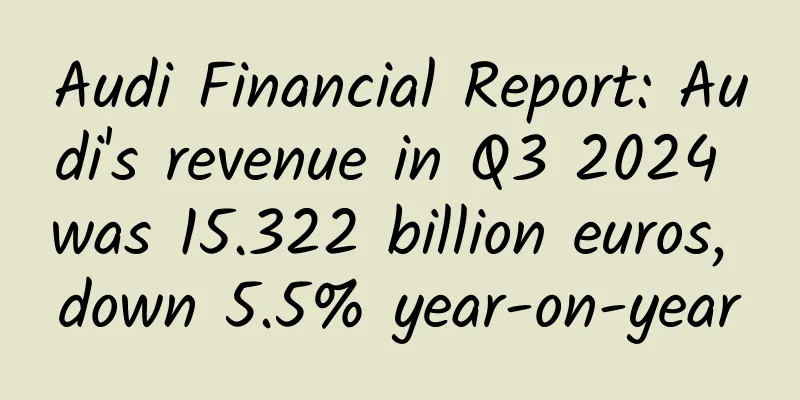Making cars! For Baidu, this is a must-answer question that must get a high score

|
After falling behind in the BAT sequence for several years, Baidu, which had been "looking for it among the crowd", finally found a way to counterattack - personally manufacturing new energy vehicles. On January 11, 2021, Baidu announced that it would establish an intelligent car company and enter the automotive industry as a complete vehicle manufacturer. Geely Holding Group became the only investor of the new company besides Baidu. Thanks to the stimulus of this event, the stock prices of Baidu and Geely Automobile have both increased by more than 50% in the past month, with Baidu gaining 70%. In the future, as the shoe lands and the real car rolls off the production line, it is estimated that the stock prices of Baidu and Geely will start the "Tesla mode", which is also a high probability event. Putting aside the groundless speculations, for Baidu, building cars is actually an inevitable option that has to be launched. After all, after so many years of research and development of autonomous driving, there must be a chance to cash in. Automatic but no driving Unlike most Internet companies that build cars, Baidu does not need to obtain a "ticket" for smart cars from the capital and entry level. As early as 2014, when it was "left behind", Baidu began to explore autonomous driving technology, hoping to overtake the mobile Internet oligarchs in the next era. From a technical perspective, Baidu has a deep foundation in autonomous driving technology. In 2019, the autonomous driving competitiveness list released by Navigant Research showed that Baidu was the only domestic company on the list, and was ranked as a "leader" along with Waymo, Ford and other companies. At present, Baidu has accumulated 1,900 global patents in the field of autonomous driving and nearly 5 million miles of cumulative test mileage. It can be said that Baidu, which has been dormant for several years, is indeed confident enough to challenge the world's top companies in the field of autonomous driving. Technology is the foundation of self-driving cars, but without cars, this foundation will have nowhere to go. Consumers can't just download a program and experience the convenience of self-driving cars on their phones, right? There is automation but no driving. In the past few years, Baidu has been troubled by this embarrassment. After repeated struggles, Baidu, with 100 billion in cash in its pocket, is somewhat confused about how to apply its cutting-edge autonomous driving technology to the consumer market on a large scale. In fact, Baidu did not intend to enter the automotive industry directly at first, but chose to indirectly promote the decentralization of its own business at the capital and business levels. In 2017, Baidu participated in the B round of financing of the new car-making force WM Motor. At the same time, Baidu also began to cooperate with traditional car companies. In September 2019, we saw the Hongqi EV Robotaxi jointly launched by Baidu and FAW Hongqi. Although there is a saying that making cars is too expensive and Baidu can't afford the loss. Previously, He Xiaopeng, chairman of Xpeng Motors, said: "Don't make cars without 20 billion." This statement makes sense, but it is also very one-sided. For Baidu, which can hit 10 small goals with short video bonuses, 20 billion is not really unaffordable, but it is afraid that Wall Street will not understand it. At that time, Baidu's stock price had reached the bottom and could not withstand any disturbance. Baidu did not choose to build cars in person right away, which is partly related to the high-risk, low-return industry characteristics of the automotive industry. In addition, the new forces in car manufacturing at that time were far from being as dazzling as they are today. With huge losses and endless product failures, each of them was wailing and struggling. Losing money to gain publicity was the mainstream judgment of capital on the industry at that time. Take NIO as an example. In the third quarter of 2020, its net loss reached 1.047 billion yuan. Since 2018, its cumulative losses have exceeded 20 billion yuan. However, perhaps two things that happened afterwards changed Baidu's attitude. First, the "low-risk, high-return" investment path that they carefully selected did not lead to the large-scale implementation of their own autonomous driving technology. Take WM Motor, in which Baidu has a "heavy stake", as an example. Although it can be regarded as a new domestic car-making force on par with NIO, Xpeng and Ideal, the failure to deliver the first batch of cars in 2019 and the disappearance of WM EX6 from the monthly sales statistics of the China Passenger Car Association for several consecutive months have proved that WM Motor can no longer shoulder the burden of popularizing Baidu's autonomous driving technology. Second, as Tesla's stock price climbed to $800 and Xpeng and NIO were reborn and outperformed, Wall Street understood the logic of Chinese Internet companies building cars, especially Baidu, a world-leading autonomous driving technology company. When Baidu personally went to the workshop to tighten the screws, wouldn't this story be more vivid than Tesla's? At the perfect time window, Baidu put on work clothes, carried a wrench and walked into the factory in person, ending the embarrassment of having automatic but no driving. Why Geely? Why did Baidu bring Geely into the car manufacturing business? Although there are many reasons, such as sharing risks and getting the car off the ground as soon as possible, these are all realities, but in 91che's view, the most likely reason is that sleepiness hits the pillow, and love meets love - Geely needs to gain a bright future from the future of autonomous driving more than Baidu. And from the statement in the press release, this is a company led by Baidu, and Geely is a strategic partner. This means that Baidu is the initiator of the new company. Judging from the speed of landing, Geely's attitude should be very positive in past negotiations, and even made a considerable degree of concessions. For Geely, which has acquired Volvo and Mercedes-Benz, taking this step is actually very difficult. If it is not directly decided by the top leader, it would not be possible to pass the customs so quickly. In contrast, SAIC and Alibaba have just jointly established Zhiji Auto, in which Alibaba only holds 18% of the shares and SAIC alone holds 54%. When Internet companies, which are so successful, go into car manufacturing, in the face of the extremely long and sophisticated automotive industry, some of the previous empowerment rhetoric is often not taken seriously, because putting more than 30,000 parts together and running forward at a speed of 200 kilometers per hour, the role of tens of millions of lines of code is just icing on the cake. In the automotive industry, the appeal of Internet companies is still more at the level of publicity. From this perspective, when Baidu and Geely join hands, Geely's mentality should be more surging than Baidu's. After carefully weighing its own future, Geely took the big diamond ring handed over by Baidu and quickly put it on its ring finger. Baidu and Geely's marriage was undoubtedly a flash marriage, but it was also a match made in heaven. First, although the evolution trend of automobiles is similar to that of smartphones, unlike small and micro smart hardware, automobiles have tens of thousands of parts, which is not friendly to Internet companies that are good at operations. Therefore, for Baidu, instead of building an electric vehicle platform from scratch, it is better to find a mature automobile company to start in-depth cooperation. Secondly, both parties have a clear understanding and boundaries in their respective positioning. The media has reported that NIO, Xpeng, and Ideal, three new car-making forces, actually approached Baidu for financing in their early stages, but because Baidu had an exclusive software ecosystem agreement, the three companies did not accept it, so they did not accept Baidu's financing. The reason why Baidu chose to invest in WM Motor was because "Shen Hui and his team also encountered a non-compete clause, but they accepted it, so they successfully obtained Baidu's financing." Although Geely has launched electric cars before, its product concept of electric cars still does not go beyond the "travel" of fuel vehicles, and its software interaction is incomparable with Tesla's products. Based on this, Geely will be happy to accept Baidu's "non-compete clause" in the new cooperation and fulfill its "manufacturer" responsibilities with peace of mind. Of course, following this line of thought, Baidu could actually do the same as NIO and find traditional car manufacturers to manufacture cars on a contract basis. But the problem arises again. The average time to build a car from scratch is 3 or 4 years, and currently Tesla, NIO, Xpeng and other manufacturers are gobbling up the first wave of market dividends. This is an opportunity that cannot be missed. Time is running out, and the trend of the times is pushing Baidu and Geely to complete a flash marriage. Baidu still has an unknown number Baidu's decision to join hands with Geely today is just a microcosm of the development of China's Internet industry today. As the dividends of mobile Internet gradually disappear, many technology giants have coincidentally set their sights on the new track of smart cars. Reuters previously quoted people familiar with the matter as saying that Apple is actively promoting its self-driving car business. If nothing unexpected happens, Apple will work with Hyundai to produce the first "Apple Car" equipped with its own breakthrough battery technology in 2024. Combined with the smartphone boom around 2010, there will definitely be more and more new car-making forces emerging in the next period of time. In this regard, He Xiaopeng once said: "As far as I know, this year (2021) there will probably be several technology companies that may become new car-making forces with different models, which will have a very positive and accelerating impact on the real arrival of the smart car market and the new mobile ecosystem." In the era of smart travel, Baidu, which missed the mobile Internet, changed its usual slowness and started to deploy business transformation when the industry was just climbing up. However, this does not mean that Baidu will definitely become the next "Tesla". Although Baidu's autonomous driving technology is second to none in the world, it still has not truly solved the "human" problem. In 2016, Baidu's driverless car began road testing. It was also the year when Baidu's autonomous driving business began to lose talent. By March 2017, the "four great kings" who founded Baidu's driverless car had all left. The loss of talent not only affects Baidu's subsequent advancement of autonomous driving technology, but is also likely to become a major obstacle to Baidu's autonomous driving technology in the future. In fact, many autonomous driving talents who left Baidu have started their own businesses and become Baidu's competitors. It is not a glorious thing for a company to become the Huangpu Military Academy of the industry. In fact, it requires the principal of the "military academy" to reflect greatly. At that time, the online video industry was surging. Gu Yongqiang, Gong Yu, Li Shanyou... these executives who came out of Sohu created one business after another that was taller than Sohu. What is the problem? Internet critic Pan Luan pointed out in his article "Baidu has no culture": Baidu has advanced technology, but lacks the business vision to match it. Similar to autonomous driving technology, as early as 2011, Baidu saw the future of personalized recommendations in information flow, but due to the inability to empower search, "after Baidu News' personalized recommendation data soared, the leaders felt that the content was low, so they transformed this product with millions of daily active users to specifically serve high-end technology people." This also means that Baidu had already touched "Toutiao" with one hand, but gave it up in the blink of an eye. The same is true for self-driving cars. Although Baidu has announced a strong alliance with Geely, which has become a must-answer question for Baidu to get high scores, it is under the double siege of the industry's "Four Heavenly Kings" in front and the delayed satisfaction of long-term invisible benefits in the back. Just like a metaphor, how far Baidu's driverless car can go still depends on the driver of the car. As a winner of Toutiao's Qingyun Plan and Baijiahao's Bai+ Plan, the 2019 Baidu Digital Author of the Year, the Baijiahao's Most Popular Author in the Technology Field, the 2019 Sogou Technology and Culture Author, and the 2021 Baijiahao Quarterly Influential Creator, he has won many awards, including the 2013 Sohu Best Industry Media Person, the 2015 China New Media Entrepreneurship Competition Beijing Third Place, the 2015 Guangmang Experience Award, the 2015 China New Media Entrepreneurship Competition Finals Third Place, and the 2018 Baidu Dynamic Annual Powerful Celebrity. |
Recommend
Baidu Wenku money-making project! Dual-mode gameplay brings you a monthly income of 8,000+
In the previous project, we mainly talked about s...
What changes will the body go through after pregnancy? Today, let's say "thank you" to our mothers
The annual Mother's Day is here In this warm ...
[Practical Information] H5 Production Tools Competition!
As a marketing person who works on the front line...
HTC may have given up on mobile phones too early, VR may not be able to support the future
HTC, once a giant in the mobile phone industry, h...
Note 8 pre-sale price is hard to exceed 10,000 yuan. It seems Samsung has really hurt the hearts of Chinese consumers.
As the annual flagship new product, Samsung has h...
Xiaohongshu product analysis: useful information to recommend products? Advertising and marketing?
This article will analyze Xiaohongshu from severa...
Tik Tok short video operation and promotion methods!
How can companies operate and promote short video...
Guo Haipei's 2021 Palm Finance - 20 Lessons on Lone Wolf Strategy
Guo Haipei's 2021 Palm Finance - 20 Lessons o...
Dumplings must be dipped in vinegar! This was decided hundreds of millions of years ago!
While we savor the delicious flavors of modern fo...
An Luqin: MADE Industry Research Price/Discount Index Trend Report in May 2024
The MADE Industry Research Price Index is publish...
Zu Xiaolai - Medium video project nanny-level practical tutorial, video explanation, violent gameplay demonstration
Zu Xiaolai - Medium video project nanny-level pra...
The first test of Coocaa U55 4K TV is about cost-effectiveness
For many people, after a busy day, staying at hom...
Your level of social anxiety may be related to this gene | Expo Daily
Your level of social anxiety may be related to th...
Let's go! See China's five major national parks
October 12, 2021 At the Conference of the Parties...
2016 Christmas Advertising Video Collection 3: Warmth makes winter no longer cold!
The annual Christmas is coming soon in this cold ...









